As China's rural revitalization advances, young Chinese people are choosing to start their businesses in the countryside.
While pursuing their dreams in vast rural areas, they have also been playing an important role in promoting modern agriculture and bringing new vitality to rural economic development. Let’s take a look at some young people who are devoted to rural development in China.
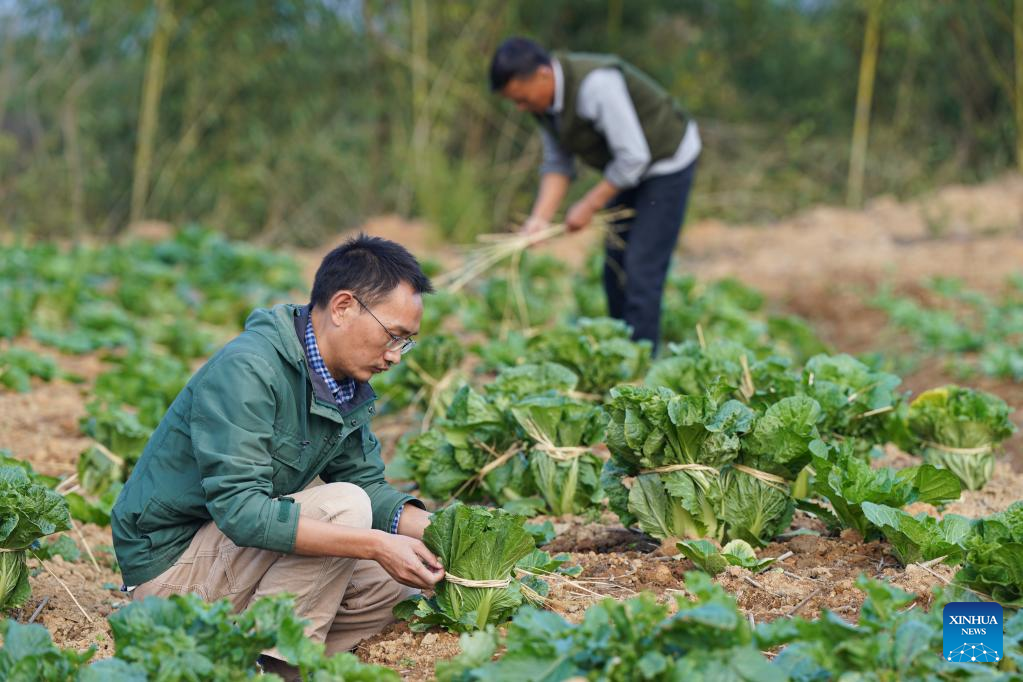
Zheng Tao and his father package vegetables in Yixian County, Huangshan City, east China's Anhui Province, Nov. 24, 2022. (Xinhua/Guo Chen)
Zheng Tao commenced veg box business in his home county in east China's Anhui Province. His "mystery veg box" contains seven to eight randomly selected varieties of seasonal vegetables, which are freshly packed and will appear on consumer tables the next day.
At its peak, Zheng sold more than 200 blind boxes daily. It is more than 600 kg of vegetables. To meet the booming demand, the new farmer rented 32 mu (about 2 hectares) of abandoned land in July 2022 and began cooperating with local villagers. So far, he has signed contracts with over 60 households, helping them increase income and a sense of fulfillment.
The innovative business has also provided new looks in the county. Some people even come from afar to visit Zheng's gardens, bringing new business opportunities, such as eateries and homestays.
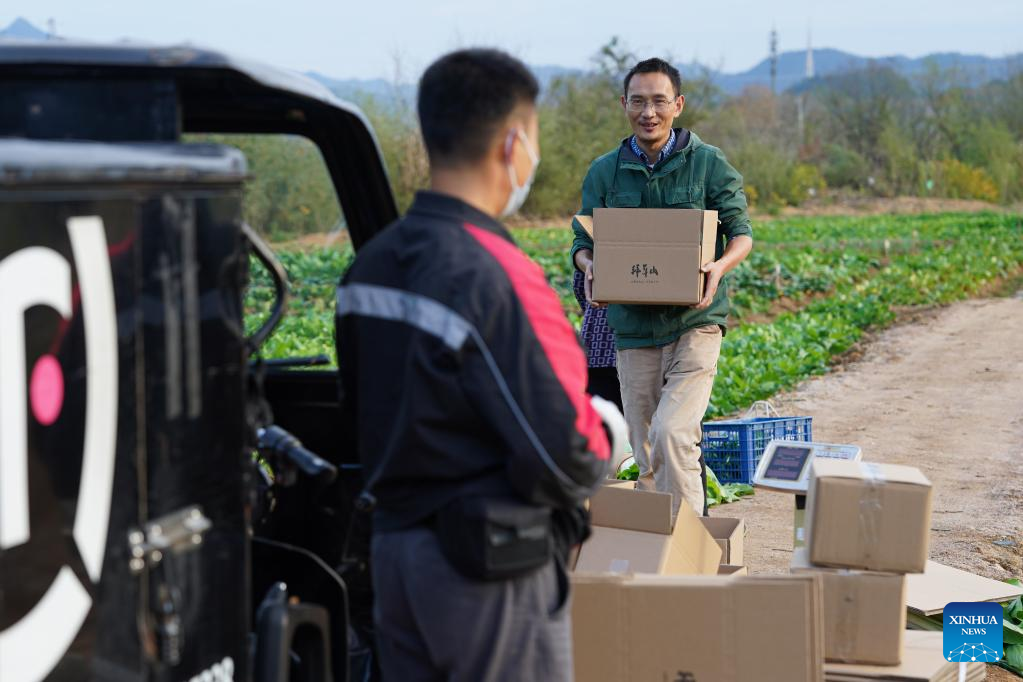
Zheng Tao (R) delivers packaged vegetables to a delivery man in Yixian County, Huangshan City, east China's Anhui Province, Nov. 24, 2022. (Xinhua/Du Yu)pagebreak
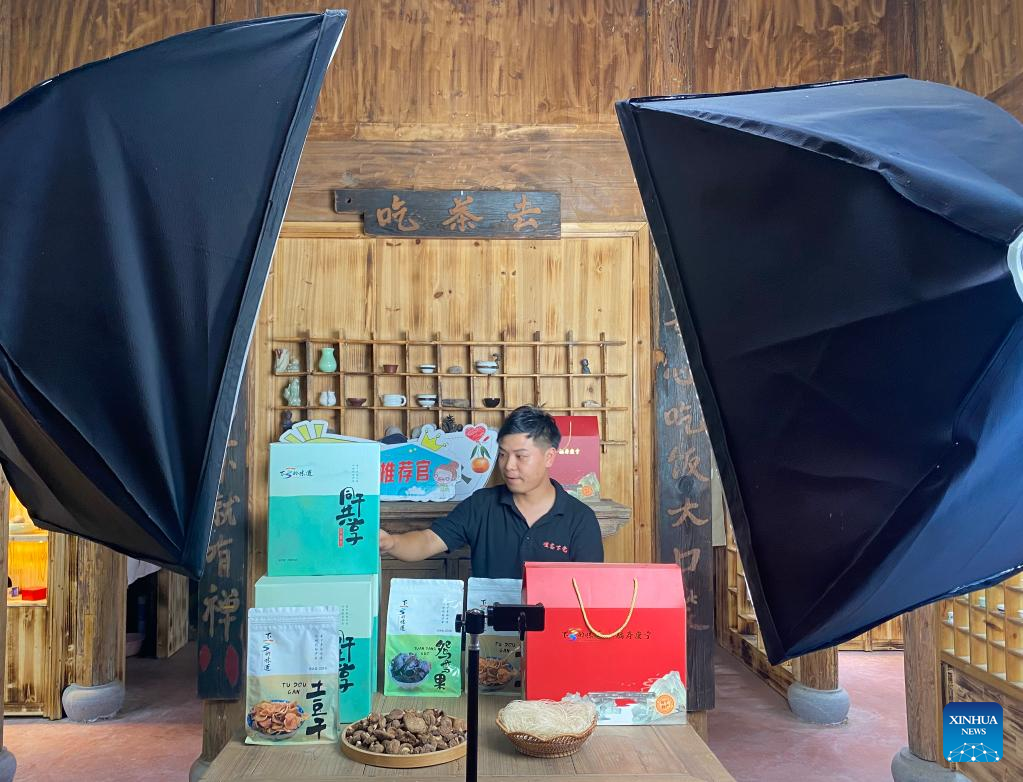
Xia Meixiong, a livestream anchor, prepares goods for online sale in Xiadang Township of Ningde, southeast China's Fujian Province, Aug. 25, 2022. (Xinhua/Xu Ruiqing)
As a livestream anchor, 33-year-old Xia Meixiong operates a channel on the short video platform Douyin, helping villagers sell farm specialties online and posting short videos showing the natural scenery of Xiadang Township of the city of Ningde in Fujian.
Xia graduated from Fujian Polytechnic School in 2007 and used to work in the construction industry in the southwestern Chinese city of Chengdu. He went to Xiadang to start a business in 2020 after seeing the booming development of the township, which shook off poverty in 2018.
"In two years, we already have about 70,000 followers on our two accounts on Douyin. Last year(In 2021), our livestream sales surpassed 1.7 million yuan (246,000 U.S. dollars)," Xia said.
"Tea sales in Beikengshan Village were not good. Through our livestream room, the online sales of the whole village surpassed 200,000 yuan last year (In 2021)," Xia added.
Xia and his team have also opened a farmhouse restaurant in Xiadang that saw a turnover of over 900,000 yuan in 2021. pagebreak
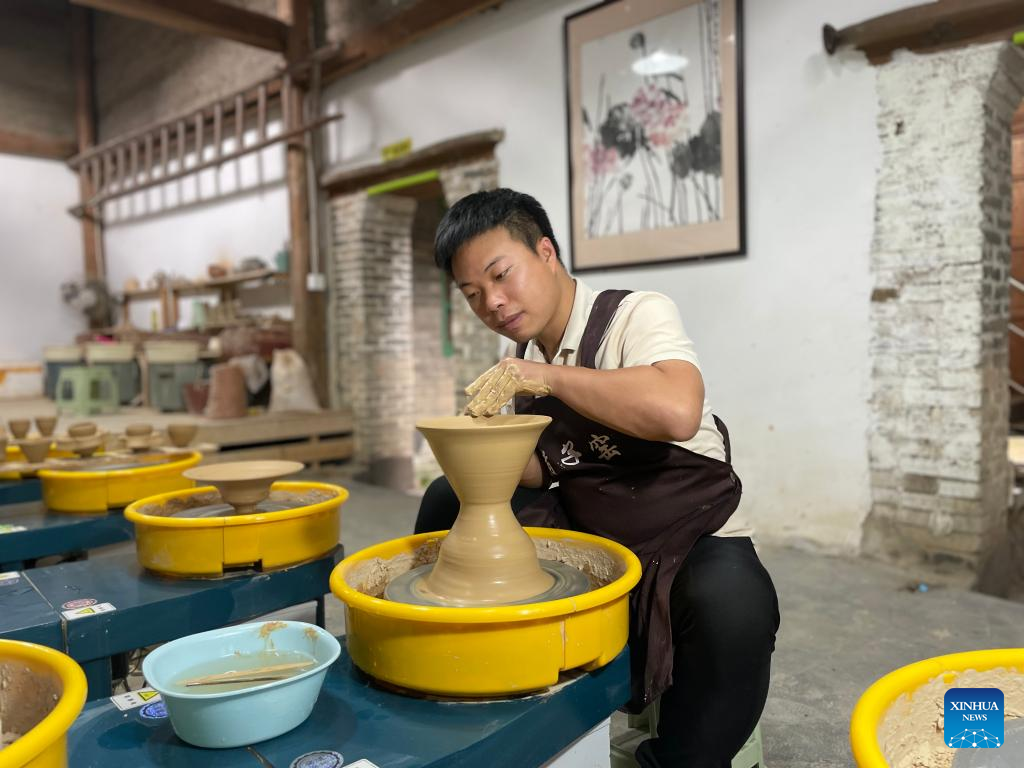
Liu Yefeng makes a porcelain product at the Zhuziyao porcelain cultural and creative studio in Wufu Township of Wuyishan, southeast China's Fujian Province, Sept. 6, 2022. (Xinhua)
Liu Yefeng, 27, is one of the founders of the Zhuziyao porcelain cultural and creative studio in Wufu Township in southeast China's Fujian Province. After graduating from Fujian Jiangxia University in 2018, Liu went to Wufu to work for the local government.
With an interest in porcelain, he and two friends founded the studio.
His studio is committed to integrating traditional cultural elements into product design. He has recently been busy with the design of a new product inspired by Longyuxi, a traditional style of folk opera popular in Wufu.
"We hope to carry forward the local culture of Wufu through our products," Liu said.
"Rural development requires the efforts of the younger generations, and also gives youths a broad stage upon which to chase and realize their dreams," he said.pagebreak
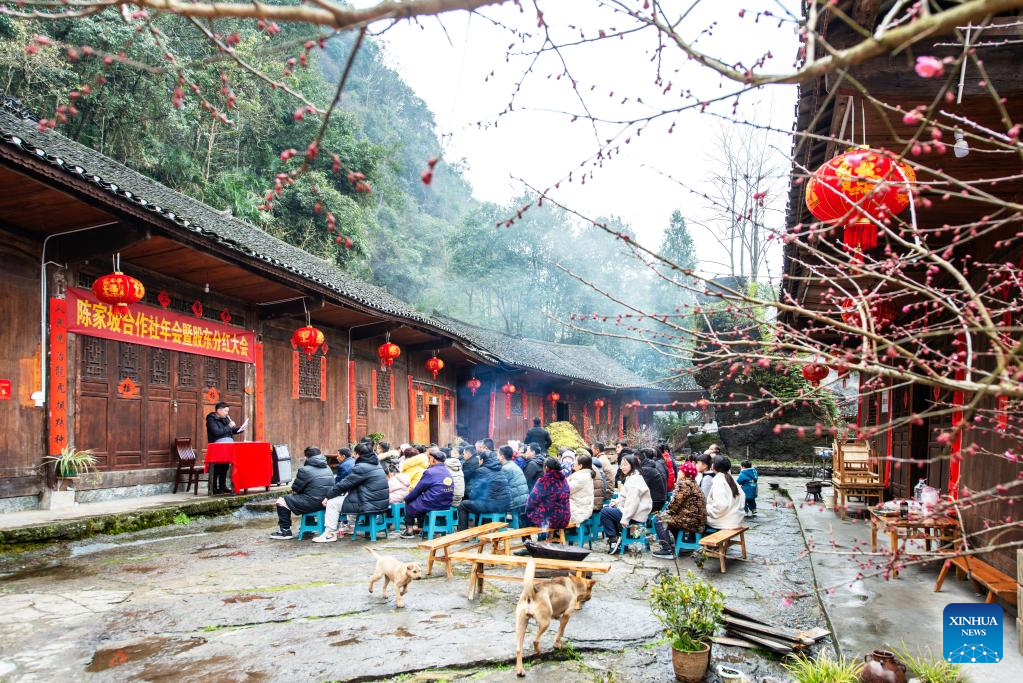
Villagers attend a shareholder meeting of the cooperatives in Chenjiapo Village of Yongshun County, central China's Hunan Province, Jan. 29, 2022 (Photo by Yu Guanglong/Xinhua)
In 2017, Chen Jian, a villager in Chenjiapo Village in central China's Hunan Province decided to return home and start a new business, having witnessed the scene of desolation in the village.
Chen called on villagers to clean up the place, dismantle the dilapidated pig and cattle pens and dirty and shabby latrines, build parking lots, a square, as well as some farmhouses.
With self-raised funds, Chen and his villagers built new amusement facilities, and established cooperatives for fruit and vegetable planting and a village tourism development company.
Nowadays, Chenjiapo Village is recognized as a five-star leisure agricultural manor by the agriculture and rural affairs department of Hunan Province.
In 2021, Chenjiapo Village saw more than 1.5 million yuan (about 214,921 U.S. dollars) of tourism income, and at the end of 2021, each of the 29 households received a dividend of 20,000 yuan.

This photo taken on Feb. 20, 2022 shows plum blossoms in Chenjiapo Village of Yongshun County, central China's Hunan Province. (Photo by Yu Guanglong/Xinhua)pagebreak
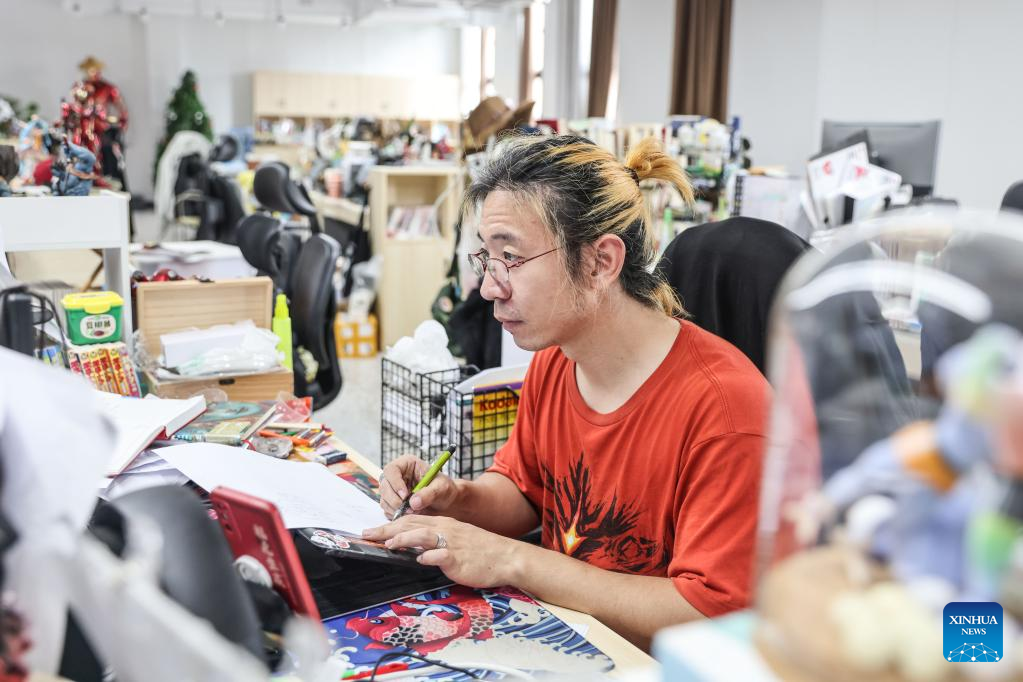
Cartoonist Liu Ke works at an animation incubation base in Changxue Village of Longqiao Town, Haikou City, south China's Hainan Province, Feb. 9, 2023.(Xinhua/Zhang Liyun)
Liu Ke, author of the popular comics "crazy neighbours," and his wife Meng Qingnan are among the first batch of cartoonists who moved into Changxue Village in south China's Hainan Province to live and work.
By actively promoting the development of animation industry, Changxue Village has attracted a number of animation enterprises and cartoonists to settle down.
The development of animation industry and the arrival of cartoonists have injected vitality to the old village and created new work opportunities for local villagers.

Cartoonist Liu Ke poses for a photo in front of his work with his wife Meng Qingnan at the exhibition hall of an animation incubation base in Changxue Village of Longqiao Town, Haikou City, south China's Hainan Province, Feb. 9, 2023. (Xinhua/Zhang Liyun)



